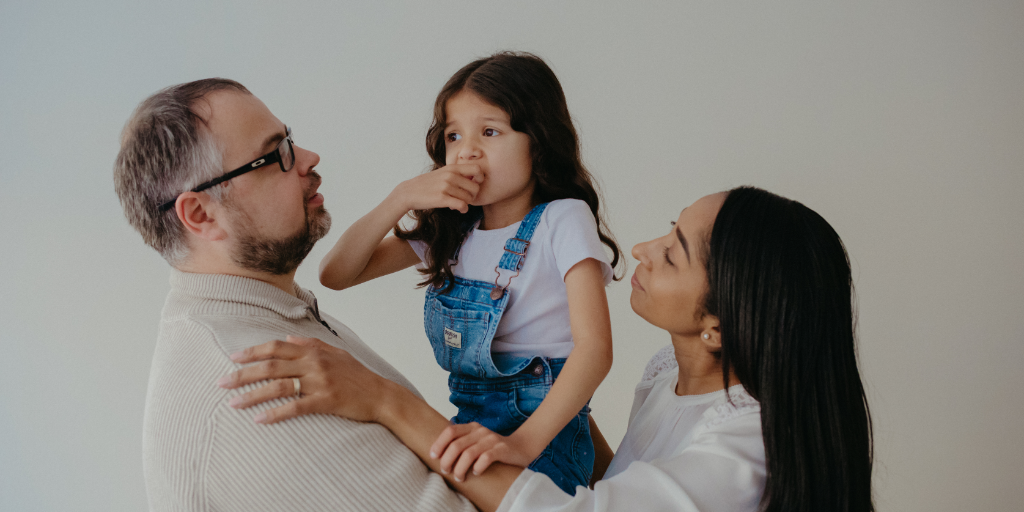
David Rizzo shares an excerpt from his book on parenting children with special needs and helping them grow in the faith.
Editor’s note: Today, we continue our two part series with another wonderful excerpt from Faith, Family, and Children with Special Needs by David Rizzo. David’s book is a fantastic resource for any family blessed with a child with special needs – he offers not only tremendous inspiration, but also practical considerations for bringing the faith to life. Honestly, many of the solutions provided are terrific for any home, but David’s experience as the parent of a daughter with autism spectrum disorder resonates greatly. As someone with a loved one on the autism spectrum, I found this book to be a blessing and am thrilled to share today’s excerpt with our readers. LMH
We were coasting along for about three or four years after Danielle made her First Communion without any problems. She accompanied us to Mass every Sunday and reverently received the Eucharist. She could stay in the pew through the homily before needing a short break, typically to use the restroom and stretch her legs before returning to the pew well in time for communion.
Then one Sunday we forgot to give Danielle breakfast before piling into the minivan and heading off to Mass. During the car ride she kept signing “cheeseburger,” but we just smiled and told her we would eat after church. The meltdown began as soon as we entered the pew and set down the kneeler to pray before Mass began. In blitzkrieg fashion Danielle grabbed the hymnbook in front of her and tried to throw it across the room. Fortunately I managed to block it. Then she started to scream and struggle in the pew. People were beginning to notice, and she was getting louder. I was able to move her out of the pew, and Mercedes was able to escort her out of the church. I was stunned. Everything had been going so well.
We valued coming to Mass as a family, but Mercedes and I knew we had to make a temporary retreat. We didn’t want the bad behavior to become a habit. For the next month Danielle stayed home on Sundays with one of us while the other attended Mass with the other kids. Whoever stayed with Danielle would go to an earlier or later Mass. We gave Danielle some time off. However, we knew that this was only a temporary retreat. We got her back into regular Mass attendance as soon as was reasonable.
This is important. Children with disabilities face many challenges, and there may be difficult stretches when behaviors are at their worst. Taking time off may be a necessary strategy, but this must never become a permanent solution. You must find a way to bring your child back so the family can attend Mass together. In our case, Danielle’s exile lasted one month. We brought her back but took prudent steps to prevent a repeat of the previous meltdown, including making sure she ate a good breakfast before church and moving hymnbooks and other items in the pew out of her reach.
Danielle’s behavior after her “exile” turned out to be exemplary. She seemed quite happy to be back and took extra care to follow all the appropriate forms, such as pressing her hands together in prayer. She made certain I could see her attention to detail by pointing her folded prayer hands in my direction and nodding to me as if to say “See, Dad, I really want to be here with my whole family in the presence of God.” She nodded and made a vocalization to the priest when he held up the Host and said to her “The body of Christ.” She knelt quite a long time in the pew after communion and again made sure I saw her praying hands.
At that point I knew that the Mass, the Eucharist, her family, and God were important to Danielle. She had missed being away and was happy to be back. It was nice to know this.
Excerpt from Faith, Family, and Children with Special Needs by David Rizzo. Used with permission of Loyola Press.
Copyright 2012 David Rizzo
About the Author

David and Mercedes Rizzo
David and Mercedes write and speak from a faith perspective as parents of a child with autism. They are available to speak, and have appeared on radio and other media. Visit DavidAndMercedesRizzo.com to learn more. Follow them on Facebook at Autism With The Rizzos. Authors of Praying For Your Special Needs Child, (Word Among Us Press) and Spiritually Able and The Adaptive First Eucharist Preparation Kit (Loyola Press).


.png?width=1806&height=731&name=CatholicMom_hcfm_logo1_pos_871c_2728c%20(002).png)
Comments